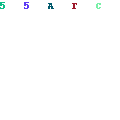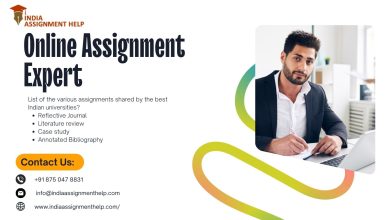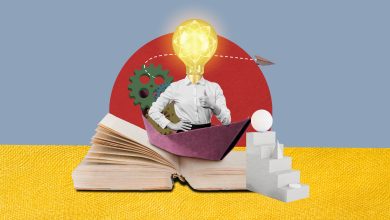Personalized Learning with LMS: Tailoring Education to Individual Needs

In the realm of education, one size does not fit all. Every learner is unique, with their own strengths, weaknesses, and preferences. Personalized learning, an approach that tailors education to individual needs, has gained prominence in recent years. And Learning Management Systems (LMS) have played a pivotal role in making this educational revolution possible. In this comprehensive guide, we’ll explore the concept of personalized learning and how LMS can be leveraged to create a customized, effective, and student-centered educational experience. Whether you’re an educator, student, or lifelong learner, this guide will equip you with the knowledge and strategies to make personalized learning a reality.
Chapter 1: Understanding the Essence of Personalized Learning
Before delving into the role of LMS in personalized learning, it’s crucial to understand the core principles and significance of personalized learning.
What is Personalized Learning?
Personalized learning is an approach that tailors education to the unique needs, abilities, interests, and pace of individual learners. It shifts the focus from a one-size-fits-all model to an education system that recognizes and accommodates the diversity of learners.
Why Personalized Learning Matters
- Catering to Diverse Learning Styles: People have different learning styles – visual, auditory, kinesthetic, etc. Personalized learning can adapt to these styles.
- Maximizing Engagement: Personalization keeps students engaged and motivated because they’re learning in ways that resonate with them.
- Fostering Independence: It encourages students to take ownership of their learning journey, making them more independent learners.
- Addressing Learning Gaps: Personalized learning can identify and address gaps in a student’s knowledge or skills, ensuring a comprehensive understanding.
Chapter 2: The Role of LMS in Personalized Learning
Learning Management Systems are instrumental in the implementation of personalized learning strategies. Let’s explore how LMS platforms support this approach.
1. Content Customization
LMS platforms offer tools for content customization. Instructors can create and deliver content that suits individual learning styles and abilities.
2. Adaptive Learning
LMS platforms often include adaptive learning modules that adjust the difficulty of assignments and assessments based on a student’s performance, ensuring they are appropriately challenged.
3. Learner Profiles
LMS systems allow educators to create learner profiles, which provide insights into each student’s strengths, weaknesses, and learning preferences.
4. Data Analytics
LMS platforms gather data on student performance and engagement, enabling educators to make data-driven decisions regarding personalized learning strategies.
5. Progress Tracking
Students can track their own progress and receive real-time feedback through LMS, fostering a sense of responsibility for their learning journey.
Chapter 3: Implementing Personalized Learning with LMS
Now, let’s delve into practical tips for effectively implementing personalized learning with LMS.
1. Assess Student Needs
Begin by assessing each student’s learning style, strengths, and areas where they may require additional support.
2. Set Clear Learning Objectives
Define clear, measurable learning objectives for each student, aligning them with their unique needs and goals.
3. Customize Content
Use the customization tools in your LMS to tailor content, assignments, and assessments to suit individual learning styles.
4. Create Learning Paths
Develop personalized learning paths that guide students through a sequence of materials and assignments, aligning with their objectives.
5. Encourage Self-Paced Learning
LMS platforms enable students to learn at their own pace. Encourage them to take ownership of their learning journey.
6. Continuous Assessment
Leverage the adaptive learning features in LMS platforms for continuous assessment and progress tracking.
7. Monitor and Adjust
Regularly review student performance data to identify areas where adjustments are needed to better align with individual needs.
Chapter 4: Personalized Learning for Educators
Educators are essential in implementing personalized learning with LMS. Here are some strategies for teachers:
1. Ongoing Training
Educators should receive training on how to effectively use LMS to personalize learning. This includes learning to analyze student data and create customized content.
2. Collaborative Learning
Promote collaborative learning experiences where students can interact with peers and share their knowledge and experiences.
3. Effective Feedback
Provide personalized feedback that addresses individual strengths and areas for improvement.
4. Tailored Assignments
Create assignments that reflect students’ interests and abilities while challenging them to grow.
Chapter 5: Personalized Learning for Students
Students also play an active role in their personalized learning journey. Here’s how they can benefit:
1. Self-Assessment
Regularly assess your learning progress and identify areas where you may need more support or resources.
2. Set Goals
Establish clear learning goals and objectives to guide your personalized learning journey.
3. Advocate for Yourself
Don’t hesitate to communicate your needs and preferences to educators. They can better support your learning when they understand your perspective.
4. Engage Actively
Actively engage with the customized content and assignments provided through the LMS. This will maximize the benefits of personalized learning.
Chapter 6: The Future of Personalized Learning with LMS
The future of personalized learning with LMS is marked by exciting possibilities:
1. Artificial Intelligence (AI)
AI-driven tools will become even more adept at analyzing student data and personalizing learning experiences.
2. Gamification
Gamified elements will make personalized learning more engaging, with students learning through interactive challenges and incentives.
3. Mobile Learning
LMS platforms will continue to prioritize mobile compatibility, allowing students to access their personalized learning experience on various devices.
4. Accessibility
LMS platforms will place greater emphasis on accessibility features, ensuring that all students, regardless of physical or cognitive limitations, can engage in personalized learning.
Chapter 7: Conclusion
In conclusion, personalized learning with LMS is an innovative approach that acknowledges the uniqueness of every learner. It empowers educators to provide customized content and experiences, and it motivates students to take ownership of their education. By following the tips and strategies outlined in this guide, you can create a personalized learning experience that resonates with your individual needs and goals. The future of personalized learning with LMS is bright, and the potential for growth is limitless. Embrace these strategies, stay informed about emerging trends, and unlock the full potential of personalized learning with LMS in your educational journey.



